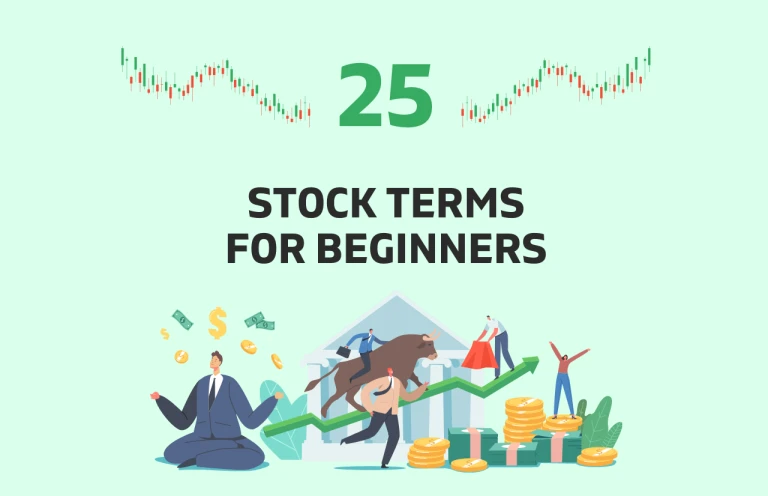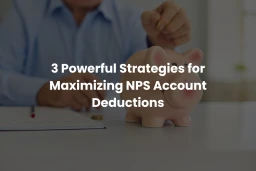25 Stock Market Terms That You Should Know

The stock market Terms can be confusing to novice investors. There are so many terms, jargon, and acronyms that it can seem like you’re speaking a different language from everyone else in the room. Fear not! In this blog post, we will go over 25 common Stock Market Terms so that you can equip yourself with the knowledge necessary to make informed decisions when you invest. Whether you’re just getting started in the stock market or want to brush up on some basics, this guide has got you covered.
25 Stock Market Terms
Annual Report
An annual report is a yearly report that every firm prepares in order to impress their shareholders. The annual report contains a wealth of information about a business, ranging from cash flow to management strategy. Several people examine the annual report in order to assess the company’s solvency and financial situation.
Arbitrage
Arbitrage is the practise of purchasing something, such as foreign currency, from one location and selling it to another location where the price of the foreign currency is greater than the purchase location. For example, if a stock is trading at $20 on one market and $21 on another, the trader must buy shares at $20 on one market and sell them at $21 on the other, earning the difference.
Averaging Down
When an investor averages down, he or she buys more shares when the price of a particular stock falls. This lowers the average purchase price of your particular stock.
Several investors employ this method if they believe that the general consensus about a firm is incorrect, and they anticipate that the stock price will rise and they will profit.
Bear Market
It is a market in which investors discuss the stock market’s performance in a downward trend, or it is a time when the prices of several stocks are declining.
Broker
A broker is someone who buys and sells investments on your behalf in exchange for a commission or fee.
Dividend
When a firm produces a profit, a portion of that profit is allocated to shareholders or those who own the company shares on a quarterly or annual basis. Not every company pays dividends, and if you’re looking for penny stocks, you’re unlikely to find any.
Sensex
The Sensex is a number that represents all of the relative share prices listed on the Bombay Stock Exchange.
Nifty
The Nifty 50 Index, also known as the National Stock Exchange of India, is the principal and benchmark stock market index for India’s equities market. The Nifty 50 is one of two stock indices used in the stock market, and it comprises of 50 Indian corporate stocks in 12 distinct sectors.
Quote
The most recent trading prices for the stock include information that is provided in a quote. Unless you’re a professional stockbroker operating in an existing trading platform, the quote may be delayed by 20 minutes at times.
Share Market
A share market is a market where shares of a specific firm can be bought and sold. The stock exchange is a prime example of a share market.
Bull Market
It is a market in which investors discuss the stock market performing well, or it is a period in which the values of several equities are rising.
Bid Price
A bid price is just the amount you wish to pay for a specific share.
Ask Price
The ask price is the price at which you want to sell a share.
Order
Order refers to the purpose of buying and selling shares in a specified price range. For example, suppose you have placed an order with company A to purchase 200 shares at a maximum price of Rs 50 per share.
Trading Volume
The number of shares exchanged on a given day is referred to as trading volume.
Market Capitalisation
It simply refers to the stock market valuation of a corporation. That is the current worth of all of a company’s shares combined.
Intra-Day Trading
Intraday trading entails buying and selling your preferred stocks on the same day, so that all of your trading positions are closed before trading hours end.
Market Order
A market order is an order to purchase or sell stock at the current market price. Many investors do not employ this Order since the trade price in the market order is still variable.
Day Order
A day order is one that is valid until the end of the trading day. If the Order does not perform by the end of the market. The order is cancel.
Limit Order
A limit order is to buy shares below a fixed price and sell shares above a fixed price. When trading stocks, it is best to utilise a limit order.
Portfolio
The portfolio is a compilation of all the investments that an investor has made since first purchasing a share.
Liquidity
The ease with which equities can be sold is liquidity. Highly liquid stocks are those that sell in huge amounts quickly.
IPO
IPO In the case of an IPO, the investor might purchase the shares from the company directly.
Secondary Sharing
It is yet another offering utilised to sell more stocks and raise more funds from the general public.
Going Long
Going Long is a bet that the price of a stock will rise, allowing you to buy at a low price and sell at a high price.
Follow us on Instagram.









